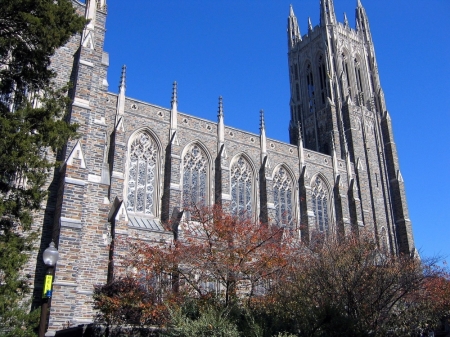Duke University, Methodism and discrimination

The Student Government Senate of United Methodist related Duke University in North Carolina has refused to recognize Young Life, an evangelical young adult ministry, because it upholds traditional views on sex, which was deemed “discrimination.”
Young Life’s Statement of Faith affirms in sexual conduct only “intimate sexual activity between married heterosexual partners.” Their policy is identical to the United Methodist Church’s, whose Social Principles say “sexual relations are affirmed only with the covenant of monogamous, heterosexual marriage.”
Adding to the contradiction, officially sanctioned campus ministry groups include not only United Methodists but also Roman Catholics and Eastern Orthodox, whose official teachings in marriage and sexuality are the same. There is also a Muslim campus group, which presumably affirms Islamic teaching that sex is only for male/female marriage. And there are several evangelical campus groups long established at Duke, like InterVarsity, which affirm the same orthodox teaching on sex.
In its unanimous vote against Young Life, the Duke student senate cited the by-laws for student organizations prohibiting “discrimination:”
Any group that engages in invidious discrimination on the basis of race, ethnicity, gender identity, sex, religion, national origin, sexual orientation, disability, or socioeconomic status shall be referred to the university administration under Section 2 of this Title. If and when adjudication by DSG is deemed appropriate, the group shall be punished on conviction for the major offense of Discrimination.
A religious group teaching that sex is only for male/female marriage was deemed discriminatory, but logically the concern should not end there. Understandably all of the campus ministry groups are led by persons who adhere to their respective faiths. The Muslim campus ministry won’t hire a Catholic to lead it, and the Catholic group won’t hire a Baptist or a Hindu. They, as they promote their respective religions, are discriminatory.
The Duke student senate presumably hasn’t yet tried to challenge or oust long existing campus ministries only because of their longevity. But its rejection of Young Life implies that any traditional religious group would have trouble gaining new access to Duke University in the current political environment.
Some traditional Christian groups are facing discrimination at university campuses because of their teachings of unique truth claims at odds with political correctness. In some cases they have successfully litigated against state schools. Duke University is private.
Of course, Duke is private because it was mostly founded and sustained by Methodism across 150 years. But as with nearly all of United Methodism’s 117 schools, the ties to church and Christian faith are increasingly remote.
Duke University is a large independent corporation that’s mostly indifferent to, if not increasingly embarrassed by, the United Methodist Church, despite Duke Divinity School, one of the denomination’s 13 official seminaries. In recent years the longtime policy that two-thirds of Duke’s trustees be nominated by North Carolina’s two United Methodist conferences was eliminated, in favor of a self-nominating board. The United Methodist bishop of North Carolina and one United Methodist minister currently are Duke trustees.
Earlier this year Duke University joined most other nominally United Methodist affiliated schools to denounce United Methodism’s traditional marriage teaching reaffirmed at the church’s governing General Conference in February. Across decades Duke has journeyed from meaningfully Methodist to generically Christian to religiously neutral to increasingly hostile to traditional religion.
As United Methodism globalizes and reconfigures, increasingly inconsequential affiliations with secularized schools likely will be amended or ended. And traditional United Methodists will need to create a new vision of meaningful Methodist higher education.
Originally posted at Juicy Ecumenism.




















